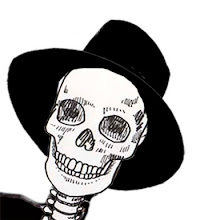Life has a beginning, a middle, and an end. We tend to think of life as a one-act play, but actually, we’re born, we live, and we die. Those, I believe, are three separate acts. If we include the Beyond, there are four. We tend not to see the ‘born’ part as a segment of our life, nor do we see the ‘die’ part that way. We only see the ‘life’ part as significant to living. I see all three of these acts as separate and independent of each other, but fundamentally intertwined with one another, and equally significant as well.
It’s important that we are able to see, and consider, each. If we are not in touch with being born, we are, most likely, not in touch with having purpose for our life. Everything that is created, made, built, fashioned, or constructed in any way, is done so with a purpose in mind. Humans, as creators, never make something without purpose. Even the most abstract idea, fashioned physically with paint, clay, sticks, plastic, or whatever, is created with a certain purpose for its existence. You might say, “No, I made that thing just to see if I could make it”, or something like that. Well, that is purposeful, and its existence is what gives meaning to you for having made it. Furthermore, its very existence gives it its own purpose. It has purpose simply by the fact that it was created with a purpose. The fact that it has dimension, shape, color, scent, or some other means of interacting with you is what gives you satisfaction. So, one might say that your satisfaction is its intended purpose. It is important that one discover one’s purpose for living. But, it can only be realized by understanding ones purpose for being born.
Living is the second act. It is where the first act finds its significance. It is where the author of the script feeds and clothes his creation. It is where the creation finds its legs, where the intent of the author plays itself out. It is where the purpose of the first act is revealed. It is the place where the creation develops itself, in keeping with the creator’s intent; or, unfortunately, it could also be the part of the play where the whole thing wanders hopelessly off course, resulting in the author no longer even being able to recognize his own work, a life whose own purpose has been, tragically, left undiscovered.
Without the beginning, the middle would have no context, or cogent sensibility. The second act of life is the transition between being born, and dying, but, in addition, it is also the continuation of being born.
Death is usually thought of as the End of life. However, the process of dying is actually the end of life. It is the third act in the play. Death is the beginning of the afterlife. Dying is the process of closing out life, as we know it. Even those who die suddenly, and unexpectedly, go through the process of dying, they are just, most likely, relatively unaware of the gradual transition. A person who dies in an auto accident, for instance, didn’t know he was going to die at that moment, but the process had been in play for quite some time. It involved a complex series of decisions, and events, that conspired together to lead up to the accident. That series of events constitutes the third act, the last act. It could have been playing out for weeks, months, or even years. The point where a person reaches the peak of his existence is the point where that person begins the process of dying. No one knows where, or when, that peak is actually reached. There is no feeling of being at the zenith of one’s life, there is no reasoning that enables us to know that ‘it’s all down hill from here’. No, it happens to all of us, at a different age, and it happens unaware.
The question I have about this three-act play is, “Will its ultimate completion illicit, within one’s self, disappointment, indifference, or a quiet satisfaction?” And, “Will it illicit, from the Author, silence, moderate approval, or perhaps, even, the much coveted acknowledgment of a life well lived, a job well done?”
And what of the beyond? Well, I don’t really know about that. But, to quote myself,
“Life is where they keep you while they’re making up your room”.

